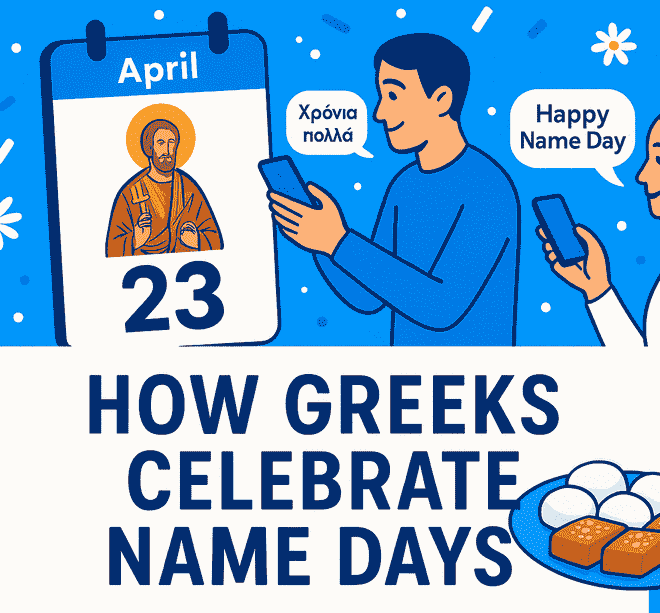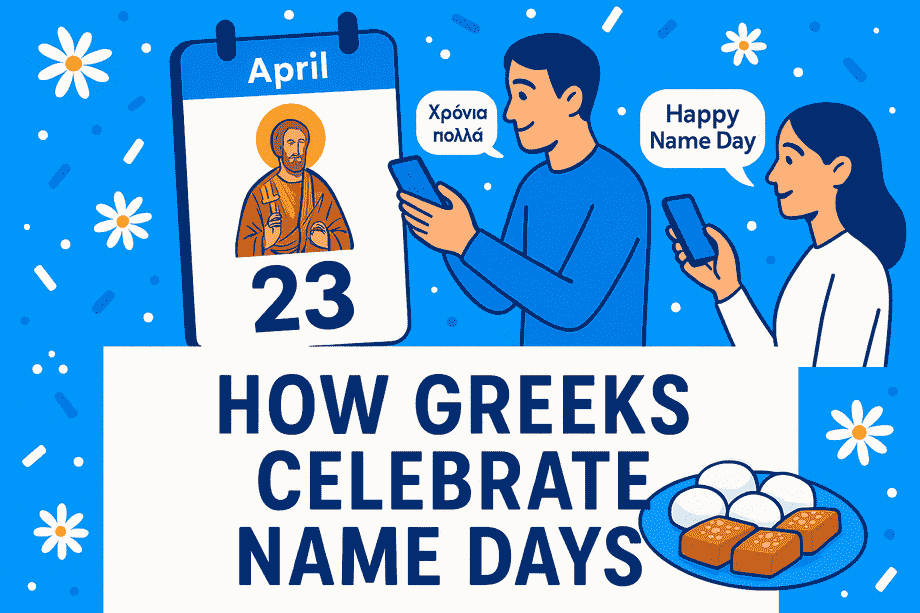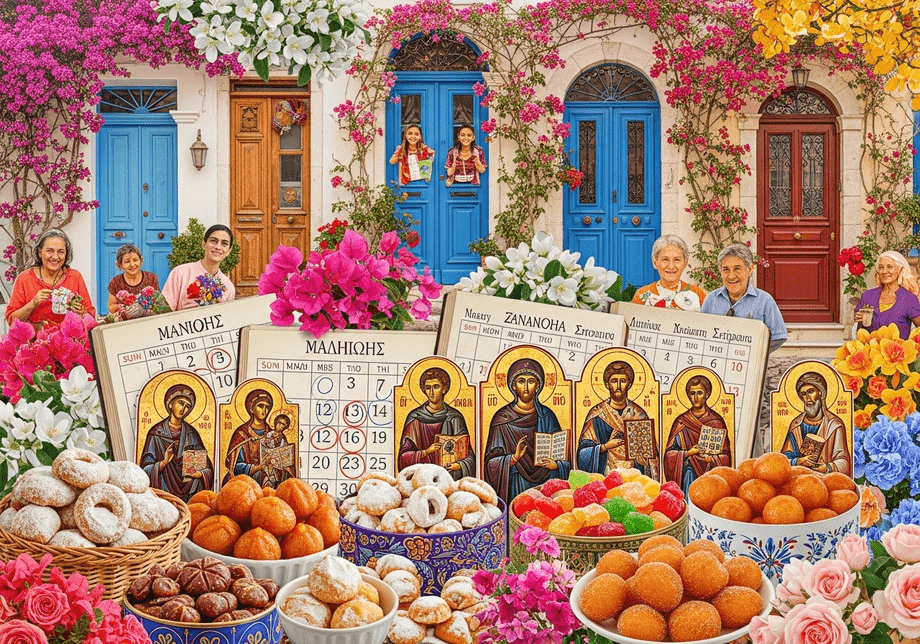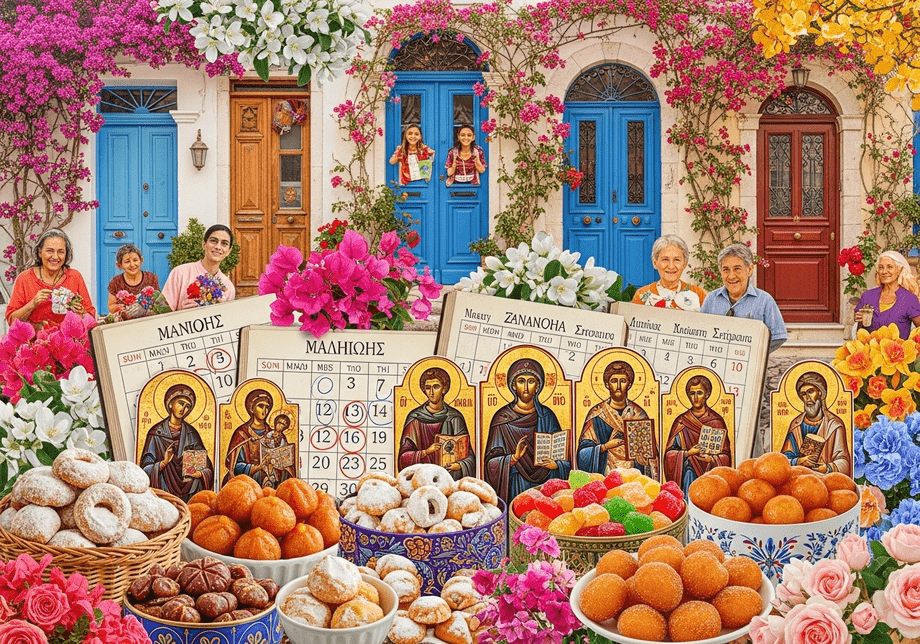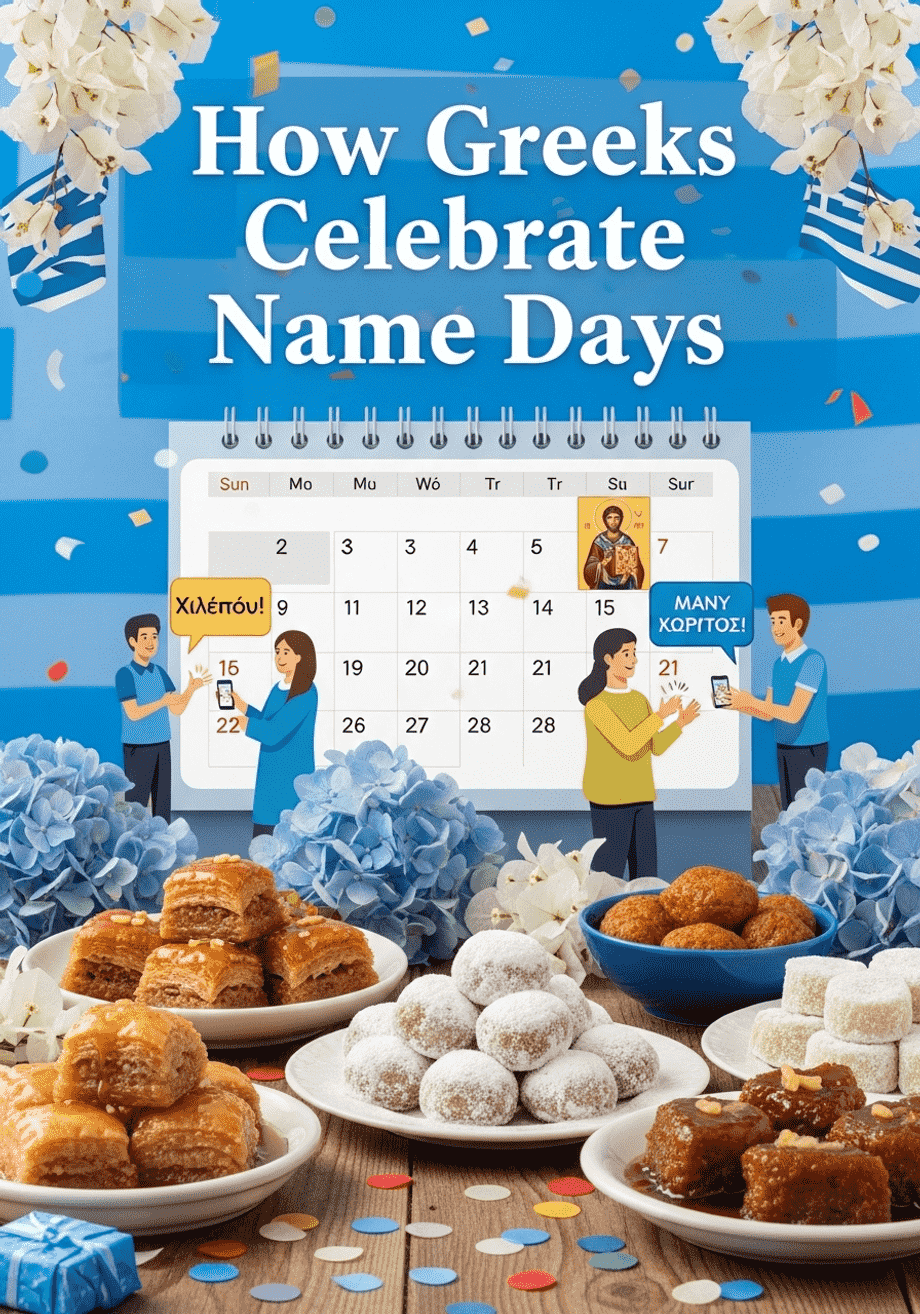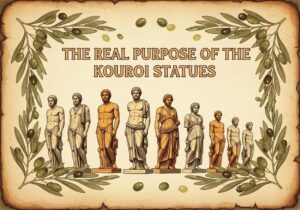How Greeks Celebrate Names Days and Why It Matters
Every year across Greece, the sound of laughter, phone calls, and the clink of glasses fills homes and neighbourhoods, not just for birthdays, but for something Greeks hold just as dear: name days. If you’ve ever walked down a Greek street and wondered why one house is buzzing with people on a random weekday, chances are it’s a name day celebration. Name days are woven into the heart of Greek life, carrying both joy and deeper meaning. Let’s explore how Greeks celebrate names days, what makes these occasions so significant, and why the tradition still matters today.
Understanding Names Days in Greece
In Greece, a name day isn’t just some quirky detail in the calendar. It’s a tradition rooted in Orthodox Christianity, shaped by centuries of culture and faith. Each day of the year honours at least one saint or religious figure. Most Greeks are named after these saints, so the day corresponding to a person’s namesake becomes their personal holiday.
Unlike birthdays, which mark when you were born, name days celebrate the saint you’re named after. This connection turns each celebration into both a personal and communal event. Names in Greek society aren’t just labels—they’re family ties, history, and even identity.
The Origin and Significance of Names Days
Name days stretch back to early Christian and Byzantine times. The Orthodox Church calendar is filled with feasts for saints, martyrs, and holy figures. When someone bears the name of a saint, their name day matches the feast day of that saint. It’s more than a party, it’s a rooted tradition showing respect to their religious heritage and, often, their ancestors.
Greeks take name days with a genuine sense of respect but also warmth. For many, it’s more important than a birthday, a chance to remember family, faith, and the passage of time in a way that goes beyond the individual.
Names Days Versus Birthdays: What Sets Them Apart?
Birthdays are private. Maybe a cake, a few presents, and a gathering of your close circle. Name days, though, are much more public. There’s no need to send invitations or organise an event in advance. Instead, people are expected to drop by with wishes, sweets, or flowers. Friends and neighbours call, text, and visit in person.
While birthdays can sometimes feel exclusive, name days are marked by open-door hospitality. The sense of belonging and communal spirit is strong. You’re never alone on your name day—everyone knows, everyone celebrates.
How Greeks Celebrate Names Days
So, how do Greeks celebrate name days? Each household and region adds its own little twist, but some patterns are easy to spot.
For many, the day begins with a visit to church. There may be a special service honouring the saint of the day. At home, an “open house” policy kicks in. The door is quite literally open, and guests are welcomed at all hours, with the host offering snacks, coffee, or drinks. Gifts aren’t required, but a box of sweets or fresh flowers is common.
The food on offer depends on the company and the region. You might find homemade savouries set out for neighbours, hearty main courses for family, and always some type of sweet. The atmosphere is cheerful, with clinking glasses of ouzo or tsipouro and laughter filling the room.
To get a feel for the warmth of Greek celebrations, look at Greek Christmas traditions, where communal feasting and open-hearted joy echo the name day spirit.
Family, Friends, and Community
Greek name days shine a spotlight on personal connections. It’s considered polite, and almost required—to call or message anyone celebrating. Social media adds a modern twist, but in Greece, the personal visit or heartfelt phone call still carries weight.
The open house sums up the community feel. Anyone can show up, from old friends to neighbours one rarely sees. There’s no RSVP, no schedule. The freedom to join in creates lasting bonds within communities.
Food, Sweets, and Symbolic Offerings
When it comes to name day tables, sweets are a must. Families prepare trays of homemade ‘loukoumia’ (Turkish delight), cakes, and syrupy pastries. These treats are shared with visitors, neighbours, and even sent to the workplace or school.
The feast is less about showing off, more about sharing. What’s interesting is how similar these customs are to big festive holidays think about lavish sweets and treats offered during Greek Christmas traditions. It all boils down to hospitality and generosity, wherever you are in Greece.
Why Name Days Matter in Modern Greek Life
Name days aren’t a relic from the past. They’re a living tradition, passed down from one generation to the next, bridging old and new. They help keep people linked to their roots and give communities a reason to gather, again and again.
The world moves fast, but in Greece, name days still carry weight. Even younger Greeks who live abroad or in large cities keep up with the practice, sometimes by phone or online, but always with meaning.
There’s also a bigger connection: name days are part of what makes Greek culture unique. These traditions sit alongside everything from folk music to ancient customs. For a look at this lasting influence, check out the Greek cultural influence worldwide, where you’ll see how centuries, old customs continue to shape modern society.
Keeping Traditions Alive Across Generations
Families play the biggest role here. Grandparents remember hundreds of names and dates. Parents teach their kids the stories behind their names. Even as daily life changes, these customs are adapted, renewed, and sometimes re-invented to stay relevant.
Name days aren’t only about religion; they’re about identity. Passing on this tradition keeps people grounded, no matter how much the world changes.
Connecting Personal and Cultural Identity
Celebrating a name day is more than throwing a party. It connects each person to their local community and to the broader sweep of Greek culture and history. The ritual blends the sacred and the everyday, making people feel part of something bigger.
Hosting a name day or visiting friends is a statement of togetherness and values. It’s a living piece of Greece’s story, alongside achievements in art, philosophy, food, and beyond.
Conclusion
Name days in Greece are more than just a tradition, they’re a vibrant link between people, faith, and culture. They remind Greeks of who they are, where they come from, and how important it is to celebrate together, not alone. Next time you hear laughter coming from a house in the middle of the week, think of Greek name days. Whether you’re Greek or just visiting, experiencing a name day celebration offers a real taste of authentic Greek life, one that’s warm, welcoming, and filled with meaning.
Frequently Asked Questions About Greek Name Days
1. What is a Greek name day?
A Greek name day is a yearly celebration honoring the Orthodox saint or religious figure that a person is named after. Most Greeks have a name day that matches the feast day of their namesake saint.
2. How is a name day different from a birthday?
Birthdays are private events marked by close friends or family. Name days are public and social. Anyone can drop in without an invitation, bringing wishes, sweets, or flowers.
3. What do people do on their name day?
Many attend church in the morning. At home, the door stays open for visitors all day. Hosts offer snacks, drinks, and sweets. Guests give simple gifts like flowers or candy.
4. How do you know when someone’s name day is?
Most Greek calendars list common name days. Families and friends often remember each other’s days, and many websites also provide lookup tools.
5. Do you have to be religious to celebrate a name day?
No. While the roots are religious, name days are about family, identity, and being part of the community. Many secular Greeks still celebrate.
6. What should you give someone on their name day?
Small gifts are best flowers, sweets, or a thoughtful card. Even a simple phone call or message is appreciated.
7. What if you forget someone’s name day?
It’s polite to apologize and still wish them well when you remember. Greeks understand it can be hard to keep track of so many dates.
8. Are there big parties for name days?
It depends. Some people keep it small, while others host large gatherings. Either way, the focus is on sharing food and warm wishes, not on gifts or formality.
9. Are children’s name days celebrated differently?
Children’s name days usually involve family and close friends dropping by, with extra sweets or treats for the kids. The tradition is about the same as for adults.
10. Are name days celebrated outside of Greece?
Yes. Greek communities worldwide keep the tradition alive, even if it’s just with a call or a simple meal.

